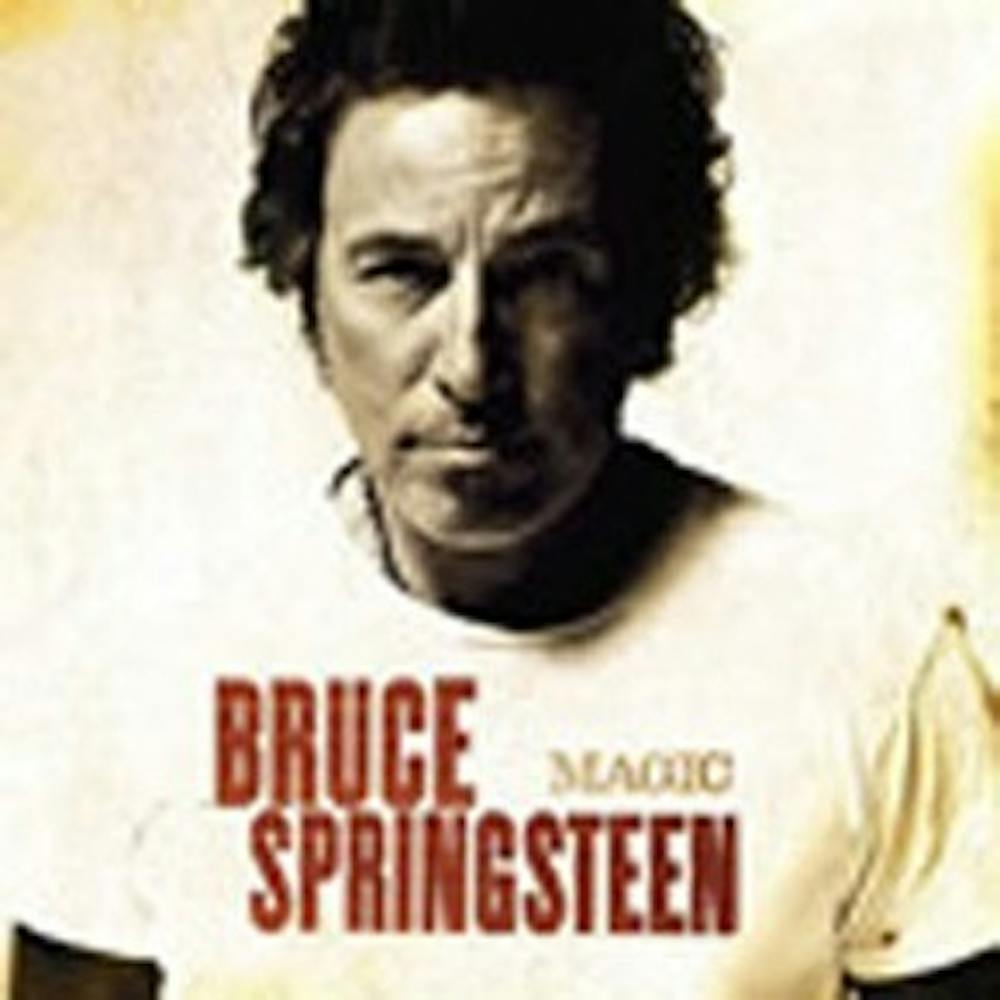Shortly after recording 2002's near-masterpiece The Rising with his longtime E Street collaborators, Bruce Springsteen got political. He also shed his rocker persona for a while and recorded two radically different albums: the haunting, acoustic Devils & Dust and the dusty folk covers of We Shall Overcome: The Seeger Sessions. For this brief moment in time, though, he's back on E Street, and once again he's showing the kids how to rock like tomorrow might never come. \nMagic is filling the stadiums on Springsteen's current sold-out tour, but most of these songs are meant to be long-remembered. Working again with producer Brendan O'Brien, who gave Devils its sense of menace and The Rising its gleam of human aural spirit, Springsteen has made an album that is spare and dense in equal measure. It only has a couple of clunkers, namely the banal "Human Touch"/"Lucky Town" throwback "I'll Work for Your Love" and the uninspired "Devil's Arcade." The rest of the record, though, is some of Springsteen's most resonant work since the late '80s. \nThe title track recalls the looming mood of "Nebraska," and "Girls In Their Summer Clothes" is a pleasing diversion. The remainder, though, finds the full band in peak form. "Gypsy Biker," the tale of a soldier coming home from war to a world of disillusion, is Springsteen's most stadium-ready rocker since "Born in the U.S.A." (ironically covering similar lyrical territory), and "Radio Nowhere" and "Livin' in the Future" explore the same emotional territory with more crunching guitar than we're used to hearing from the E Streeters. "You'll Be Comin' Down" and "Long Walk Home" find Springsteen on the occasional pop high, and "Last to Die" is the only political statement of the lot, but is destined, with its lyrics about false tyrants and would-be kings, to become a relevant anti-war anthem long after Iraq is left in ruins. \nIn many ways, Magic feels like a more personal album than Springsteen's last couple and therefore is a worthy successor to The Rising. Devils found him masquerading as others for a time, and We Shall Overcome was simply a tribute to one of his idols. With Magic, though, Springsteen is once again tackling modern times and commanding a sense of urgency from his band. If The Rising was all about shaking off the ashes, Magic is about what happens when those ashes are forgotten, and we're left to fight off the complacency.
Springsteen returns to rock
Bruce Springsteen & the E Street Band Magic Grade: B+

Get stories like this in your inbox
Subscribe





